GoMRI Programs

The Alabama Center for Ecological Resilience (ACER) Consortium came together to investigate how biodiversity influences an ecosystem’s ability to resist and recover from disturbance, specifically the ecosystems of the northern Gulf of Mexico to the 2010 Deepwater Horizon oil spill. Over the next 3 years, ACER scientists will conduct field and large scale manipulative lab Read More
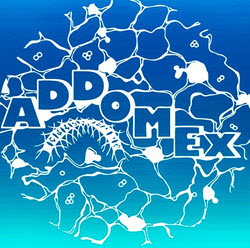
The Aggregation and Degradation of Dispersants and Oil by Microbial Exopolymers (ADDOMEx) consortium is funded by the Gulf of Mexico Research Initiative to investigate the impacts of spilled oil and dispersants on the formation of an extracellular matrix called EPS (exopolymeric substances) formed by marine microbes that is thought to be instrumental in determining the fate of Read More
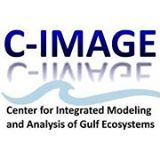
The Center for Integrated Modeling and Analysis of Gulf Ecosystems (C-IMAGE) is a research consortium of 19 U.S. and international partners focused on effects of oil spills on marine environments. The C-IMAGE consortium is currently in their second installment of funding from the Gulf of Mexico Research Initiative (GoMRI) in response to the Deepwater Horizon Read More

The Consortium for the Molecular Engineering of Dispersant Systems (C-MEDS) is a research collaboratory involving 43 investigators from 22 universities in the US. The Consortium is based on the premise that dispersants are an essential aspect in the effective management and mitigation of large oil releases from deep ocean environments. A key aspect of the Read More
The scientific knowledge gained through the Consortium for Advanced Research on Marine Mammal Health Assessment (CARMMHA) research objectives will be informative to ongoing restoration efforts, resource management, and mitigation efforts aimed at reducing the effects of stressors on marine mammal populations and improving the long-term environmental health of the Gulf of Mexico. Whether you are Read More

The Consortium for Advanced Research on Transport of Hydrocarbon in the Environment (CARTHE) studies ocean currents in the Gulf of Mexico in hopes that they will be able to predict where oil or other toxins may go in the event of a future spill. CARTHE’s outreach program disperses our scientific results to a wide audience and interactively Read More

Coastal River-Dominated Ecosystems (CONCORDE) scientists explore water movements and organism distributions in the northern Gulf of Mexico to see how oil and dispersants from future oil spills might impact the biota. An important part of the scientific process—one as carefully planned as every experiment in a well-thought-out program—is how to share findings with the community who Read More
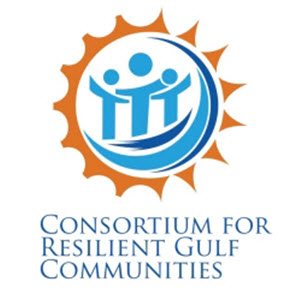
The Consortium for Resilient Gulf Communities (CRGC) aims to reach and bridge community organizations and leaders, policy makers, and scholars by seeking to improve the understanding of and responses to hydrocarbon release disasters. By linking academic and practice institutions in our management model and integrating basic science and applied research, we will create products that are collectively Read More
The nature of the CSOMIO project presents many opportunities for engagement with teachers, graduate and undergraduate students, K12 students, policy makers, and the general public. The primary goals of the CSOMIO Education & Outreach efforts are to provide resources and research experiences for high school students, K-12 teachers, undergraduates, and graduate students; and to communicate Read More
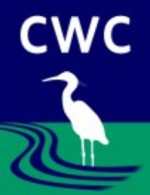
The Coastal Waters Consortium (CWC) came together in early 2012 to assess the chemical evolution, biological degradation, and environmental stresses of petroleum and dispersant within Gulf of Mexico coastal and shelf ecosystems. CWC research and education and outreach programs are funded for 3 years by the Gulf of Mexico Research Initiative. The Lead Administrative unit Read More
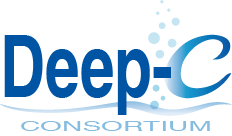
The nature of the Deepsea to Coast Connectivity in the Eastern Gulf of Mexico (Deep-C) Consortium — investigating the issues involved in understanding and protecting ecological communities in the Gulf of Mexico, and the opportunity to create models that make the interaction of the physical, chemical, and biological realms real — provide rich opportunities for Read More

Deep-Pelagic Nekton Dynamics of the Gulf of Mexico (DEEPEND) is excited to share their science, teaching content, and exciting outreach programs with everyone over the next 3 years. Part of DEEPEND’s goal for a successful program is to have a robust education/outreach platform for anyone interested in learning more about the projects, the people and the Read More

The Dispersion Research on Oil: Physics and Plankton Studies (DROPPS) consortium brings together complementing experts from seven institutions in order to investigate and model several key processes involved with the dispersion of oil spills and interactions of oil with marine organisms. The experimental and numerical studies will be performed at varying scales and levels of complexity, Read More
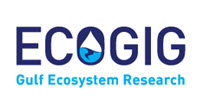
The Ecosystem Impacts of Oil and Gas Inputs to the Gulf (ECOGIG) consortium is committed to communicating its experience, observations, research, and data with other researchers, scholars, students, and the public through educational and outreach endeavors. The principal investigators engage students—from undergraduate to postdoc levels—in their research, assisting them in furthering their knowledge of the Read More
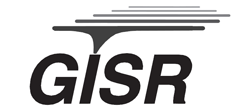
The vision of the Gulf Integrated Spill Response Consortium (GISR) is to understand and predict the fundamental behavior of petroleum fluids in the ocean environment. This capability is critical to inform decisions during response to oil spills and for development of mitigation plans, ultimately yielding significant environmental and financial savings. The Mission of this proposal is Read More
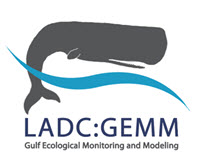
The Littoral Acoustic Demonstration Center – Gulf Ecological Monitoring and Modeling (LADC-GEMM) consortium scientists have been collaborating through the LADC since 2001. The team will bring to GoMRI the experience of 14 years of continuous acoustic research in the northern GoM. The LADC-GEMM consortium members include the University of Louisiana at Lafayette, the University of New Read More
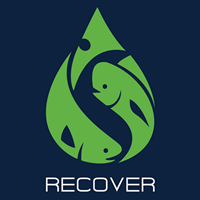
The Relationships of Effects of Cardiac Outcomes in fish for Validation of Ecological Risk (RECOVER) Consortium consists of seven Co-PIs from four institutions: University of Miami, FL, University of Texas at Austin, Port Aransas, University of North Texas, and University of California, Riverside. It is the mission of RECOVER to better understand the toxic effect of Read More
